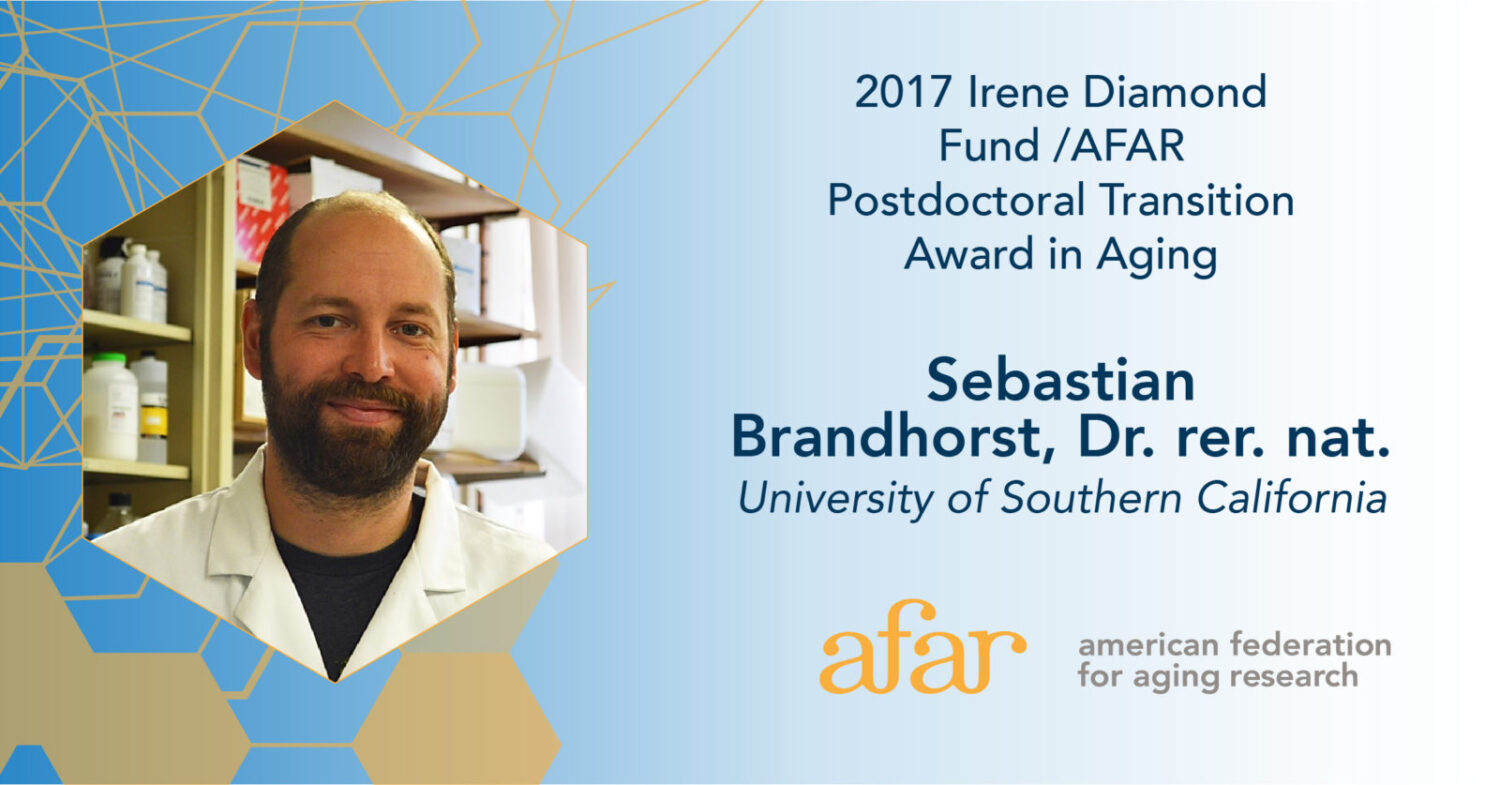With a new research award, USC Leonard Davis School of Gerontology Postdoctoral Researcher Sebastian Brandhorst will investigate how a “fast-mimicking” diet could target cells that show signs of aging for removal and potentially restore more youthful function.
Aging is a major risk factor for the development of cancer, cardiovascular and neurodegenerative diseases. With increasing age, old—or “senescent”—cells accumulate in many tissues and are thought to impair tissue function through the depletion of stem cells and progenitor cells needed for tissue renewal, Brandhorst explained.
Diet may address telltale aging marker
These senescent cells are known to express a telltale protein called p16INK4a. Prior research shows that calorie restriction targets cells expressing the protein and reduces the amount of the protein, possibly by making old cells more prone to die. Brandhorst will investigate how the fasting-mimicking diet, during which a small amount of food is eaten but is nutritionally balanced in order to mirror the benefits of fasting, targets p16INK4a-positive cells for removal and thus improves tissue function.
“My studies will contribute to the identification of dietary interventions to not only treat but also prevent multiple diseases of aging by acting on the aging process and promoting multi-system rejuvenation,” he said. “New insights gained from this award are thus highly relevant to human aging and will continue to be translated into clinical trials to further improve human healthspan.”
Brandhorst has been awarded a $120,000 Postdoctoral Transition Award in Aging by the American Federation for Aging Research (AFAR), a non-profit organization dedicated to advancing biomedical research on aging, with support from the Irene Diamond Fund. The goal of the program is to provide portable and flexible transitional funding for senior postdoctoral fellows as they develop and negotiate for junior faculty appointments and independent research programs. Brandhorst said he considers the award a great honor and a “major step toward an independent research career.”
“There is significant competition for postdoctoral fellows that thrive to advance their career due to the limited number of junior faculty appointments available at various institutions,” he said. “I am convinced that the unique training I obtained in [USC Leonard Davis School of Gerontology Professor] Valter Longo’s lab and the many great collaborations I have with the faculty and staff of the USC Leonard Davis School of Gerontology, together with the experiences and networking-opportunities resulting from this AFAR award, will provide an important stepping stone for my career as an independent researcher in the field of biogerontology.”
Award supports new independent research
The Irene Diamond Fund/AFAR Program distinguishes itself from other postdoctoral fellowship programs by providing full-time research training and flexible and portable grant support to senior postdoctoral fellows and providing leverage to negotiate for junior faculty appointments and independent research programs either at their own or other institutions. If the awardee successfully transitions to a tenure-track (or tenure-track equivalent) junior faculty position within two years, they may be eligible to receive an additional award of up to $30,000 to be used as start-up funds in the new position.
“By giving these postdoctoral fellows this extra boost at a critical moment in their career path, AFAR is helping create a research pipeline that is essential to advancing better therapies for age-related diseases and discoveries that will help us all live healthier, longer,” said Jeremy Walston, Chair of the 2017 Selection Committee for the Irene Diamond Fund/AFAR Postdoctoral Transition Awards in Aging.
This year, AFAR has awarded seven of these Postdoctoral Training Awards totaling $840,000 dollars. To date, AFAR has awarded more than $175 million in grants to support more than 4,400 investigators and students at more than 500 leading institutions across the U.S. as well as Ireland, Israel, Italy, and the United Kingdom.
“By supporting investigators dedicated to healthy aging for more than three decades, AFAR has witnessed how our grantees have transformed the core knowledge of how our bodies age and how age-related illnesses can be harnessed to extend health,” said AFAR Executive Director Stephanie Lederman. “We are confident that these Diamond/AFAR awardees will make a substantial impact on the field and ultimately all of our lives.”
Release courtesy of the American Federation for Aging Research; additional content by Beth Newcomb





